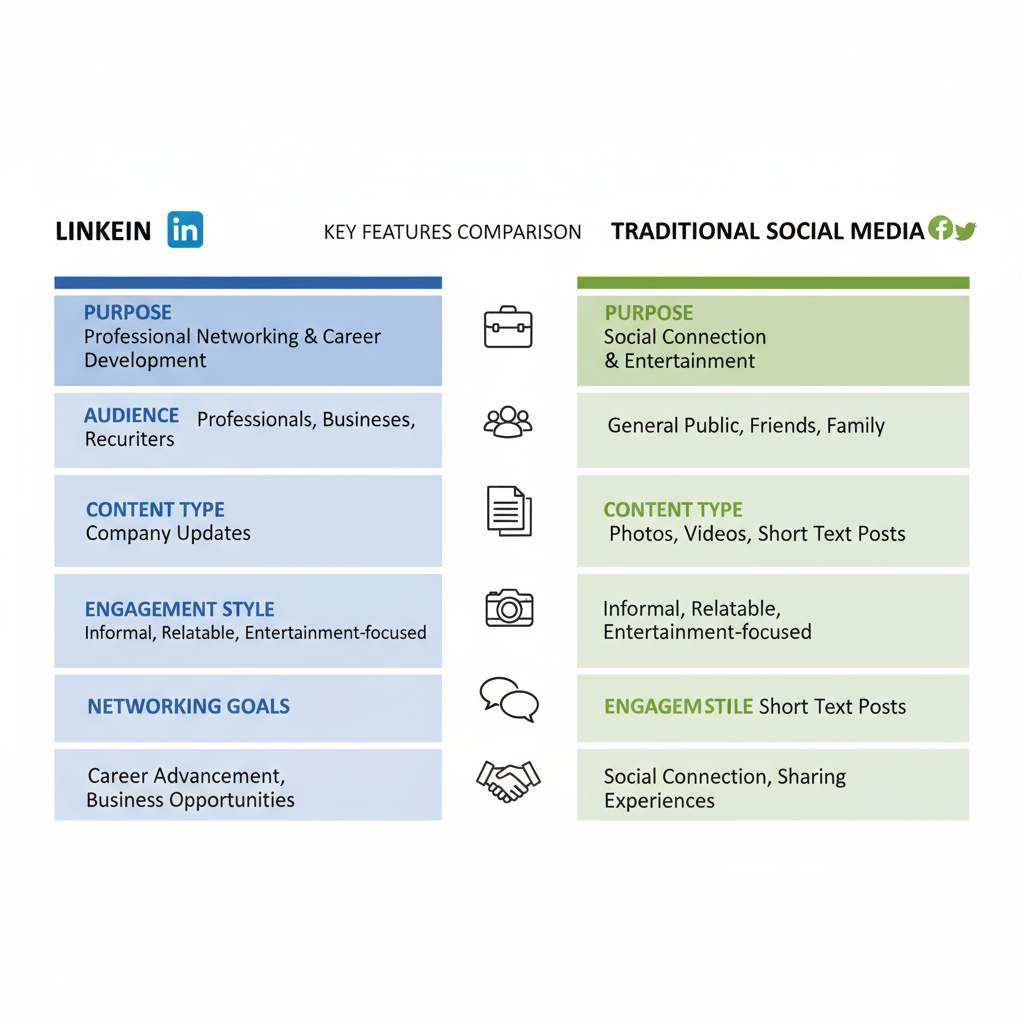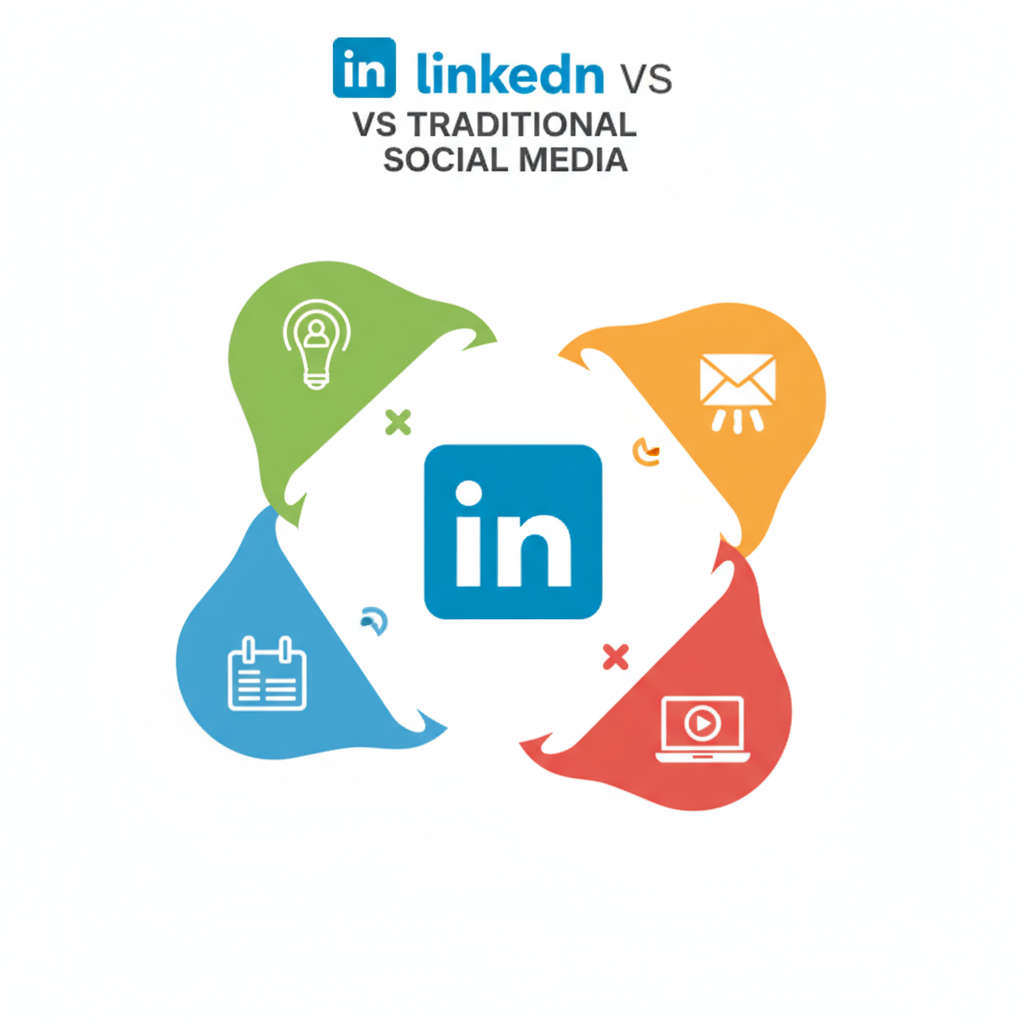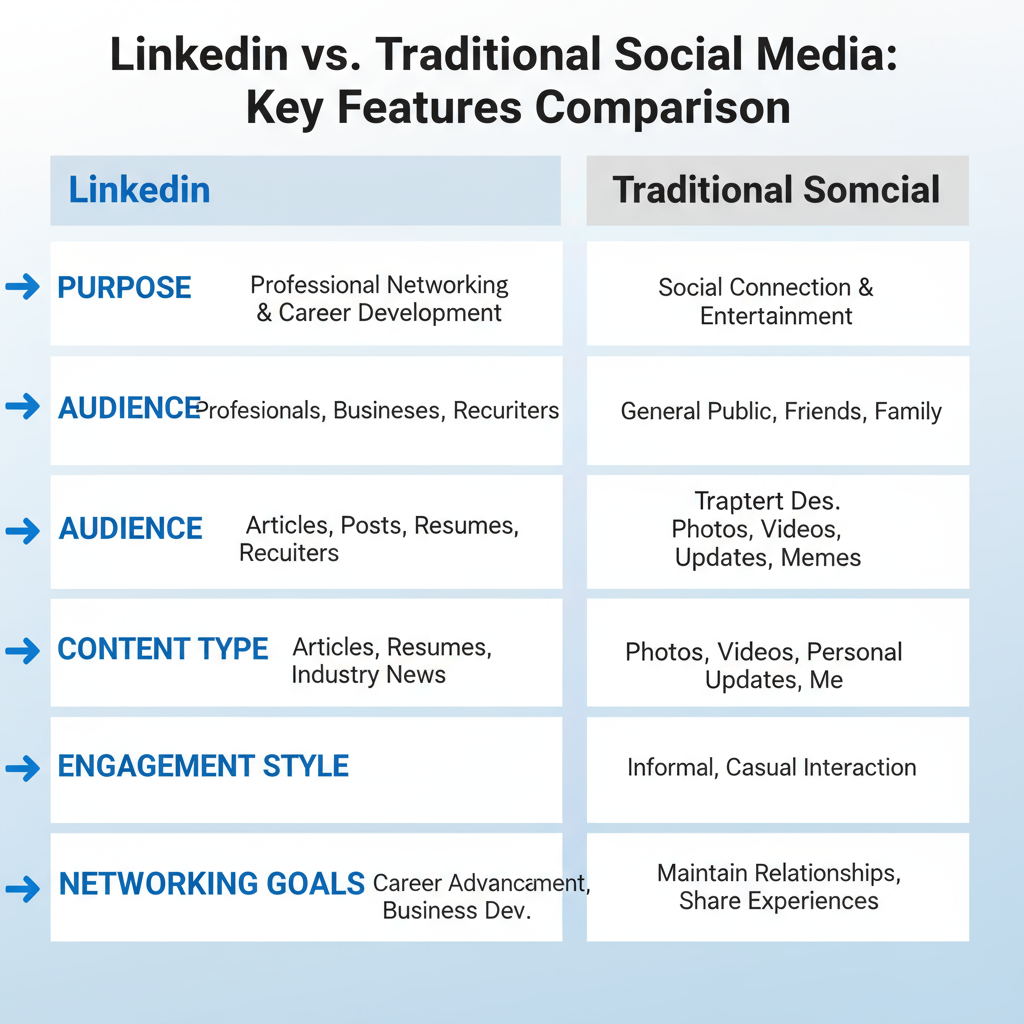Is LinkedIn Considered Social Media for Professionals
Learn how LinkedIn fits into the social media landscape, its evolution, unique features, and ways professionals can leverage it for career growth.

Is LinkedIn Considered Social Media for Professionals?
LinkedIn has become a central hub for professional networking in the digital era, but many still wonder: is LinkedIn considered social media or does it stand apart as something entirely different?
As social media shapes how we communicate — both personally and professionally — understanding LinkedIn’s role within this landscape is essential. In this guide, we explore LinkedIn’s history, features, and unique positioning, along with how individuals and businesses can maximize its potential.

---
Understanding Social Media and Its Defining Features
At its core, social media refers to online platforms that allow users to create, share, and engage with content, while fostering communities and relationships. Common characteristics include:
- User-generated content — Posts, articles, images, videos, or links.
- Interactive features — Likes, comments, shares, reactions.
- Social connections — Friends, followers, or professional contacts.
- Content feeds — Personalized streams based on algorithms and network activity.
While platforms like Facebook, X (formerly Twitter), and Instagram are textbook examples, these fundamental traits also apply to LinkedIn’s structure and operation.
---
LinkedIn’s History and Evolution Since 2003
Founded in May 2003, LinkedIn started as a dedicated professional networking platform. Its journey has seen significant transformations:
- Early Years (2003–2007): A functional directory for resumes, connections, and job searches.
- Growth Phase (2008–2011): Introduction of Groups, Company Pages, and recruitment tools.
- Content Era (2012–2016): Launch of publishing tools, a dynamic news feed, and native video.
- Modern LinkedIn (2017–Present): Live streaming, event hosting, AI-driven suggestions, and advanced analytics.
Now with over 900 million members across the globe, LinkedIn is far from its early “digital resume” identity.

---
Core Functions of LinkedIn vs. Traditional Social Networks
While LinkedIn shares many social media mechanics, its core mission focuses on business and career advancement:
| Feature | Twitter (X) | |||
|---|---|---|---|---|
| Primary Purpose | Professional networking, career growth | Personal connections, community sharing | Real-time updates, news | Visual storytelling |
| User Base Mindset | Career-oriented | Casual & personal | News & topical discussions | Lifestyle & aesthetic |
| Content Types | Articles, job posts, thought leadership | Photos, personal updates | Short posts, threads | Images, reels, stories |
| Networking Style | Professional connections | Friends & family | Public followers | Followers |
---
Professional Networking vs. Casual Social Interaction
On casual networks:
- Conversations are often personal, light, and entertainment-driven.
- Content tends toward lifestyle, humor, and viral trends.
In professional networking:
- Discussions revolve around industry insight, skills, and opportunities.
- Communication is intentional, credibility-focused, and value-driven.
LinkedIn blurs these lines by encouraging authentic storytelling alongside business-focused content — such as sharing personal career challenges while providing actionable industry insights.
---
LinkedIn’s Social Media Features
Although branded as a professional network, LinkedIn includes most key social media functionalities:
- Feed: An ongoing stream of content tailored to your network.
- Connections: A reciprocal network-building model.
- Followers: Option to follow without mutual connection.
- Groups: Community spaces by industry or interest.
- Messaging: Direct communication with files and media.
- Posts & Articles: Short updates and long-form publishing.
- Reactions & Comments: Engagement tools for interaction.
These confirm that LinkedIn’s framework is firmly rooted in the social media format — just optimized for professional use.
---
How Different Users Engage with LinkedIn
Businesses:
- Build employer brand and showcase expertise.
- Recruit skilled professionals.
- Generate B2B leads through targeted content and ads.
Job Seekers:
- Maintain an interactive résumé.
- Network with recruiters and industry peers.
- Gain referrals and market visibility.
Professionals & Freelancers:
- Post thought leadership content.
- Discover trends and development opportunities.
- Find clients, collaborators, and mentors.

---
LinkedIn in B2B Marketing and Thought Leadership
In B2B spaces, LinkedIn is unmatched as a professional social media platform for marketing and building influence:
- Run LinkedIn Ads by role, industry, and company size.
- Host LinkedIn Live for webinars and panel discussions.
- Encourage employee advocacy to amplify content reach.
- Publish niche research to establish authority.
Its algorithm rewards high-quality, consistent, and relevant postings, making it ideal for growth without sacrificing credibility.
---
The Ongoing Debate: Professional Network or Full Social Media?
Arguments for LinkedIn being “different” include:
- Less entertainment noise than typical social platforms.
- Stronger focus on value and professional results.
- Measurable outcomes like hiring, lead generation, and partnerships.
Yet, its structure — feed, engagement metrics, and community — firmly aligns with the social media model. Essentially, LinkedIn is a specialized subtype of social networking.
---
Benefits and Limitations Compared to Other Platforms
| Benefits | Limitations |
|---|---|
| Highly targeted professional audience | Less reach for mass consumer marketing |
| Effective for B2B lead generation | Slower content virality |
| Thought leadership opportunities | Posts may underperform without consistent activity |
| Advanced analytics and ad targeting | Risk of overly promotional culture |
---
Conclusion: Where LinkedIn Fits in the Social Media Ecosystem
So — is LinkedIn considered social media? Absolutely, but with a unique focus. LinkedIn combines the mechanics of traditional networking platforms with a professional-first approach, making it invaluable for personal branding, recruitment, and B2B marketing.
For individuals and organizations seeking meaningful, career-driven connections, LinkedIn bridges the gap between casual socializing and strategic relationship-building. Harnessing it effectively can elevate credibility, open doors to new opportunities, and solidify a lasting professional presence online.
If you want to grow your influence and earn more opportunities, make LinkedIn a central part of your social media strategy — and start engaging today.



